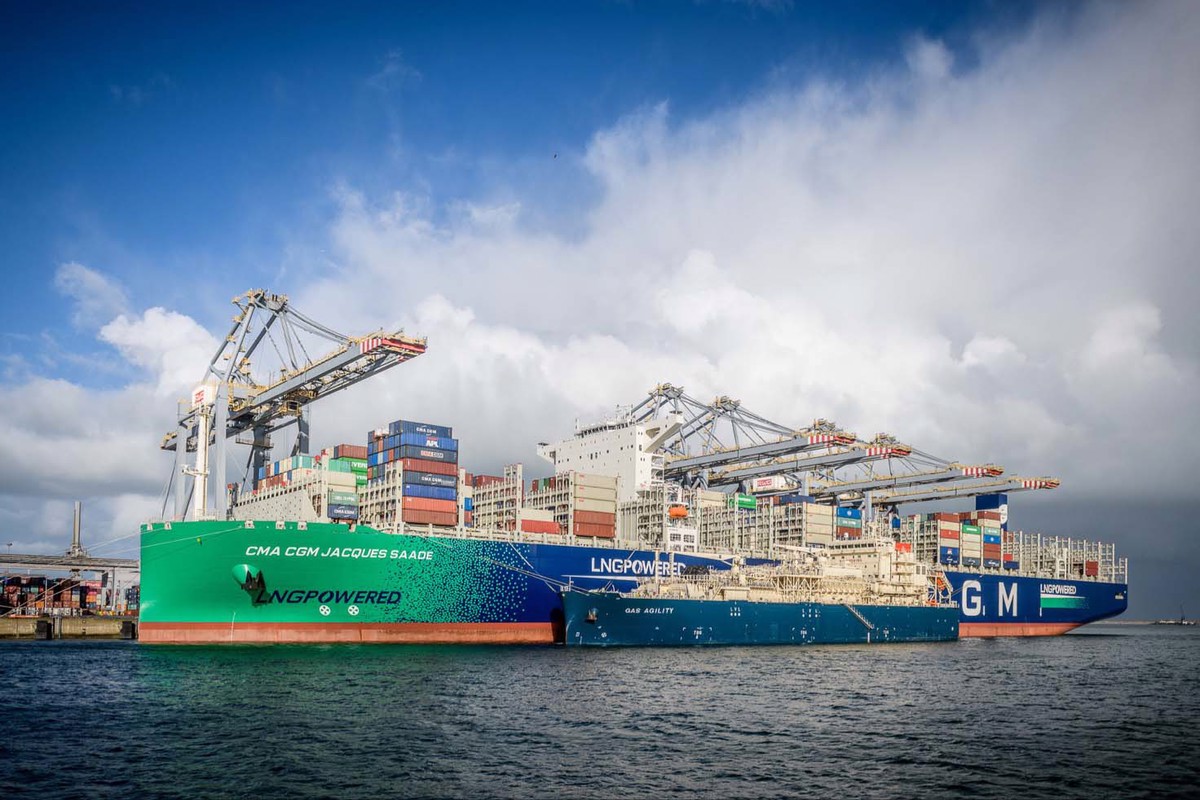Weaning off fossil fuels a challenge for shipping - ICS survey
LNG and biofuels are projected to dominate the alternative marine fuels market over the next decade, while fossil fuels will remain popular for at least the next 25 years, according to a new survey by the International Chamber of Shipping.
 PHOTO: An LNG-powered container vessel. CMA CGM
PHOTO: An LNG-powered container vessel. CMA CGM
A total of 130 maritime leaders, including shipowners and managers, were questioned for the International Chamber of Shipping's (ICS) Barometer 2022-2023 survey. The majority of respondents agreed that the shipping industry cannot quit fossil fuels cold turkey.
Maritime future tainted with brown?
Around 40% of respondents were confident that fossil fuels consumption will not be phased out in the next 25 years. Another 27% predicted their use will extend beyond 25 years.
“HFO and VLSFO are fuels that are almost exclusive to shipping whereas all alternative fuel options will see shipping in competition with other sectors of the global economy,” noted ICS, quoting an anonymised respondent.
Survey respondents believed LNG and biofuels would underpin maritime decarbonisation in the next decade. As the most viable options for reducing emissions in the next decade, heavy fuel oil (HFO) combined with scrubber technologies and dual-fuel hybrids of HFO-LNG came third and fourth, respectively, while ammonia rounded up the top five.
Shipping in a Catch-22 situation
The ICS attributed this pessimistic outlook to the limited availability of hydrogen-based fuels like methanol and ammonia and lack of port infrastructure to supply and store these fuels.
“There is also a paradox in play, with ports holding off on decisions about specific infrastructure ahead of confirmed market demand by shipowners, who in turn are reluctant to commit to specific fuels and technologies until access to bunkering and supporting infrastructure has been confirmed,” said ICS.
The respondents predicted that LNG, HFO-LNG hybrid, biofuels and LPG will remain the most readily available fuel alternatives for the next five years. They expect that supply of ammonia and methanol will pick up between 2030 and 2040 - around the time when port infrastructure for bunker operations is likely to be ready.
To promote wider adoption of low- and zero-emission fuels, participants called for urgent access to alternative fuels, as well as bunkering and fuel storage facilities to be in place in ports within 5-15 years, ICS argued.
“Port infrastructure is not only costly to develop and time-consuming, but often dependent on support from national governments, making the timelines particularly important,” it concluded.
By Konica Bhatt
Please get in touch with comments or additional info to news@engine.online






